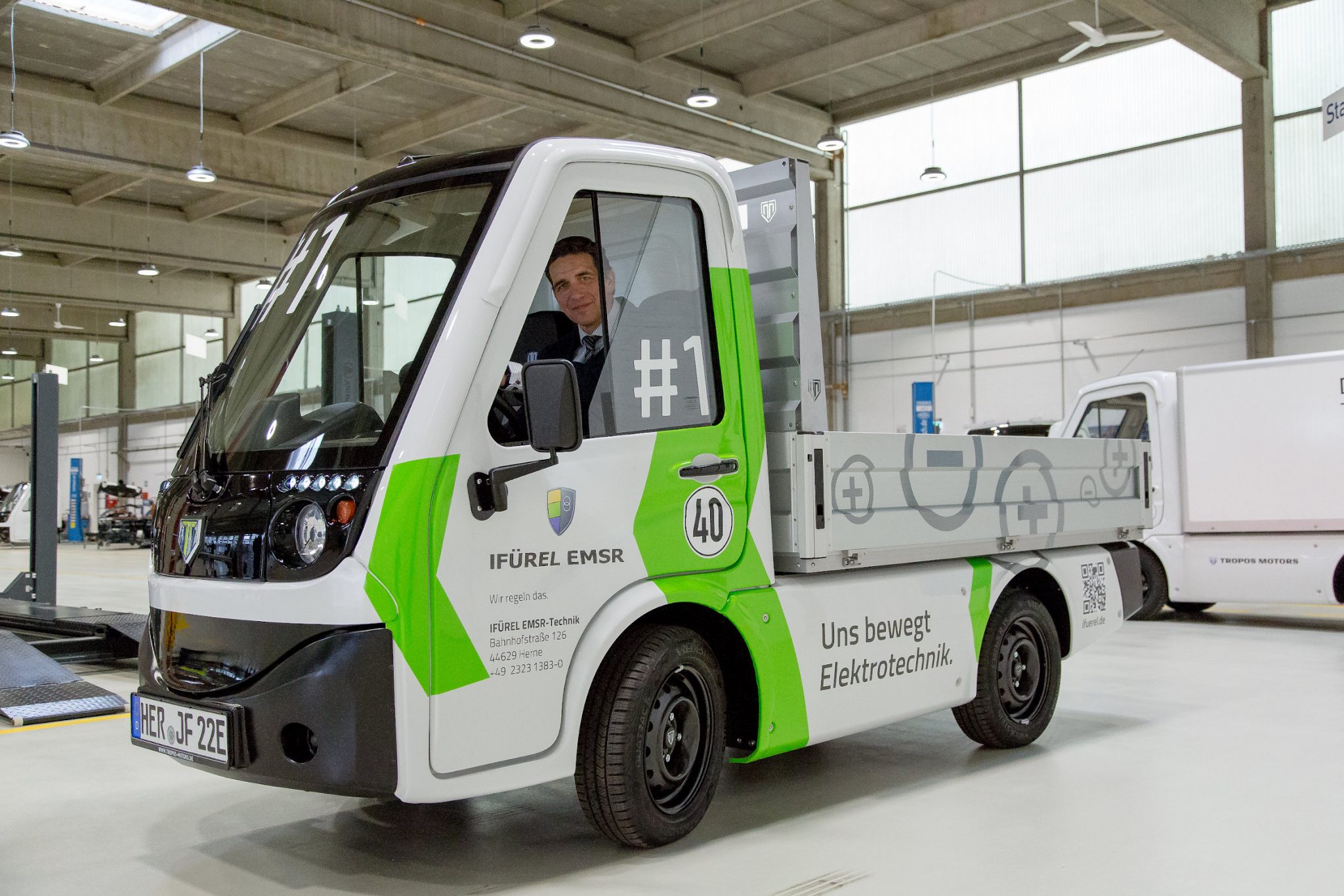Hubtex says the PhoeniX is the top energy saver among electric multidirectional sideloaders thanks to its electric steering. Hubtex is the first manufacturer worldwide to offer this energy-saving electric steering system as standard in all multi-directional forklifts from the new PhoeniX modular system with a current load capacity of up to 7 tonnes. By using electric steering, it is possible to reduce energy consumption by up to 85% in comparison with a standard hydraulic steering system. Based on the steering system’s proportion of the vehicle’s total energy consumption, this results in peak savings of up to 33%, claims the company. In addition, electric steering systems are virtually silent, it says, which makes work considerably more pleasant for the driver.
Optimal manoeuvrability and efficiency are claimed by Hubtex – it says the PhoeniX sideloaders are able to perform even complex transport tasks quickly, precisely and reliably. The electric multidirectional sideloaders are especially suitable for handling long loads in narrow rack aisles. Hubtex uses a purely electric steering system, allowing for a significant reduction in energy consumption. “The electric steering motors in our patented HX steering system only work when actual steering movements take place,” explains Hans-Joachim Finger, Managing Sales Director at Hubtex. “When the axle is not moving, it means zero energy consumption.”
With hydraulic steering systems, on the other hand, the pump must remain in constant operation in order to be able to supply the oil pressure for upcoming driving manoeuvres. Depending on the equipment configuration of the vehicle, energy consumption may increase even further. For example, inductive track guidance systems, which are often used to transport long goods in narrow aisles, have a relatively high energy requirement. This can be massively reduced by using electric steering. In in-house tests comparing electric and hydraulic steering systems, Hubtex found that the electric steering system resulted in energy savings of up to 85%. If this is related to the steering’s proportion of the vehicle’s total energy consumption, energy savings of up to 33% can be achieved at peak times.
Can be combined with HX steering for stepless change of direction
The PhoeniX system has a modular structure. This means that the electric steering system can be easily combined with the patented HX steering system from Hubtex. This steering technology enables the lift trucks to switch from longitudinal to transverse travel without stopping. The lift truck can be easily manoeuvred in all directions and can change direction much more quickly than a vehicle with a conventional four-way steering system. Eliminating transitions also ensures measurable time saving. Furthermore, the modular system of the PhoeniX series is consistently prepared for automation. The integration of the electric steering offers advantages here and significantly extends the operating time of the vehicles. There are also benefits for the driver: manoeuvring via electric steering completely eliminated the sometimes-loud noise of the hydraulic motors. As a result, the new generation of vehicles are very quiet while in motion. Electric steering is available on the PhoeniX series 2820, 2821, 2829, 2830 and 2831 with a load capacity from 1.5 to 7 tonnes. Consequently, Hubtex is able to cover the most popular load capacity classes. Additional PhoeniX series will follow during 2020.
However, the advantages of electric steering in terms of energy consumption and noise levels do not mean that Hubtex will stop offering hydraulic steering. As a hydraulic steering system has greater power reserves, it still has advantages to offer if the multidirectional forklift is required to operate with a high load capacity and where the ground conditions are very poor.
Find out more about the Hubtex electric multidirectional sideloaders here.






